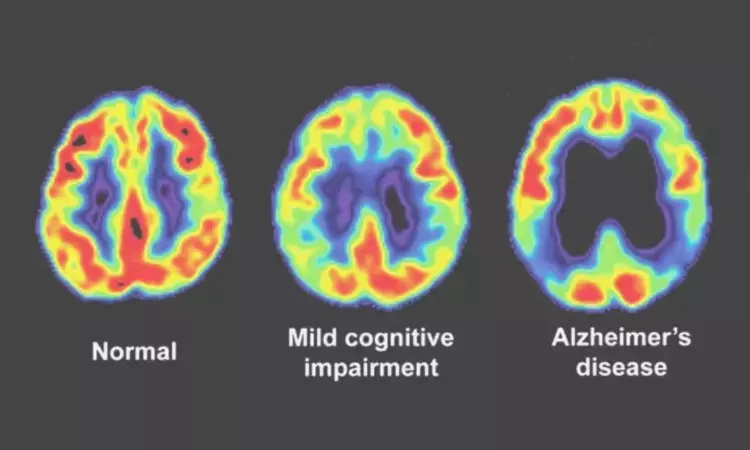- Home
- Medical news & Guidelines
- Anesthesiology
- Cardiology and CTVS
- Critical Care
- Dentistry
- Dermatology
- Diabetes and Endocrinology
- ENT
- Gastroenterology
- Medicine
- Nephrology
- Neurology
- Obstretics-Gynaecology
- Oncology
- Ophthalmology
- Orthopaedics
- Pediatrics-Neonatology
- Psychiatry
- Pulmonology
- Radiology
- Surgery
- Urology
- Laboratory Medicine
- Diet
- Nursing
- Paramedical
- Physiotherapy
- Health news
- Fact Check
- Bone Health Fact Check
- Brain Health Fact Check
- Cancer Related Fact Check
- Child Care Fact Check
- Dental and oral health fact check
- Diabetes and metabolic health fact check
- Diet and Nutrition Fact Check
- Eye and ENT Care Fact Check
- Fitness fact check
- Gut health fact check
- Heart health fact check
- Kidney health fact check
- Medical education fact check
- Men's health fact check
- Respiratory fact check
- Skin and hair care fact check
- Vaccine and Immunization fact check
- Women's health fact check
- AYUSH
- State News
- Andaman and Nicobar Islands
- Andhra Pradesh
- Arunachal Pradesh
- Assam
- Bihar
- Chandigarh
- Chattisgarh
- Dadra and Nagar Haveli
- Daman and Diu
- Delhi
- Goa
- Gujarat
- Haryana
- Himachal Pradesh
- Jammu & Kashmir
- Jharkhand
- Karnataka
- Kerala
- Ladakh
- Lakshadweep
- Madhya Pradesh
- Maharashtra
- Manipur
- Meghalaya
- Mizoram
- Nagaland
- Odisha
- Puducherry
- Punjab
- Rajasthan
- Sikkim
- Tamil Nadu
- Telangana
- Tripura
- Uttar Pradesh
- Uttrakhand
- West Bengal
- Medical Education
- Industry
Tau PET imaging can identify Alzheimer's subtype associated with psychosis: Study

USA: Results from a recent study in Translational Psychiatry suggests that increase in tau pathology in frontal, medial temporal, and occipital cortices as seen with PET imaging, is associated with psychosis and a more rapid cognitive and functional decline in Alzheimer's disease (AD) patients.
Psychosis in Alzheimer's disease is a distinct disease subtype tied to a more rapid illness progression as evident with a astened mortality and increased velocity of f cognitive decline. Previous studies have suggested tau neuropathology to be a possible mediator of the accelerated decline in AD psychosis.
Tau positron emission tomography (PET) neuroimaging gives the opportunity to evaluate tau pathology in-vivo, so that clinical symptomatology can be compared with disease pathology. [18F]-AV1451 (Flortaucipir) is a PET ligand having high affinity for insoluble aired-helical filaments (PHFs) of hyperphosphorylated tau.
Against the above background, J. J. Gomar, Feinstein Institutes for Medical Research, Manhassett, NY, USA, and colleagues aimed to determine whether the development of psychosis and worsened prognosis in AD is associated with an increased burden of tau pathology that can be identified with tau imaging.
For this purpose, the researchers identified subjects within the Alzheimer's disease neuroimaging initiative (ADNI) who had [18F]-AV1451 imaging at baseline and became psychotic over the course of the study (N = 17). They were then matched in the ratio of 1:3 for gender, age, and education to subjects who had [18F]-AV1451 imaging at baseline and did not become psychotic (N = 50). Baseline [18F]-AV1451 retention was then compared along with cognitive and functional baseline and longitudinal change, in those who became psychotic over the course of participation in ADNI with those who did not.
The authors conclude, "the results suggest that increases in tau pathology in frontal, medial temporal, and occipital cortices, visualized with [18F]-AV1451 binding, are associated with psychosis and a more rapid cognitive and functional decline."
Reference:
Gomar, J.J., Tan, G., Halpern, J. et al. Increased retention of tau PET ligand [18F]-AV1451 in Alzheimer's Disease Psychosis. Transl Psychiatry 12, 82 (2022). https://doi.org/10.1038/s41398-022-01850-z
Dr Kamal Kant Kohli-MBBS, DTCD- a chest specialist with more than 30 years of practice and a flair for writing clinical articles, Dr Kamal Kant Kohli joined Medical Dialogues as a Chief Editor of Medical News. Besides writing articles, as an editor, he proofreads and verifies all the medical content published on Medical Dialogues including those coming from journals, studies,medical conferences,guidelines etc. Email: drkohli@medicaldialogues.in. Contact no. 011-43720751


